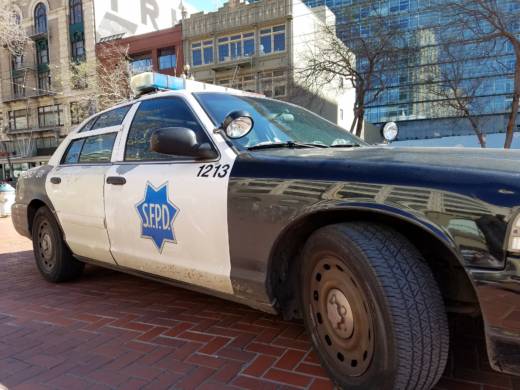Many of the 37 black defendants arrested over two waves of the operation accepted plea deals, but 12 of them disputed the charges long enough for their federal public defenders to receive some of the surveillance videos from the prosecution.
In one of those videos, an undercover SFPD officer passes by an Asian-American person selling drugs to complete a buy from a black suspect, Cassie Roberts, who was on the phone.
"On the recording, the undercover officer explains that Ms. Roberts was not paying attention to him, but he got her attention and avoided the 'Asian chick,' " the lawsuit says.
In a separate bust, an SFPD officer can be heard on the video saying "fucking BMs," a reference to black males, "as the camera is focused on a group of Black men and women," according to the complaint. Another officer then said, "Shh, hey, I'm rolling."
Defense attorneys sought more evidence to bolster their argument that the arrests unconstitutionally targeted black people while avoiding suspects of other races, but federal prosecutors "abruptly sought dismissal, without explanation" of the charges against the remaining 12 defendants, according to the lawsuit.
Civil Suit
"It became very apparent that they had singled out black people for very harsh and very severe prosecution under federal law," said Novella Coleman, a staff attorney with the ACLU Foundation of Northern California. She is one of several plaintiff's attorneys on the lawsuit.
The complaint goes far beyond the individual circumstances for the people arrested in the operation, however, recounting numerous scandals and more than seven studies stretching back to 2002 that found racial disparities in San Francisco policing.
"San Francisco has had some of the starkest racial disparities when compared to other cities within the state of California," Coleman said.
John Cote, a spokesman for the City Attorney's Office, said he could not comment on specifics about the lawsuit because the agency had not seen it yet. But he defended the SFPD's actions.
"What we can say is that the San Francisco Police Department did not engage in selective enforcement during Operation Safe Schools," Cote said in an email.
"This was a joint operation led by the federal government. The evidence will show that San Francisco police acted in accordance with federal directives," Cote said. "The San Francisco Police Department prides itself on being one of the most diverse, forward-thinking and transparent law enforcement agencies in the country."
The ACLU's complaint also references interventions in the SFPD after the drug stings, including a U.S. Department of Justice review that found "major deficiencies" throughout the Police Department in 2016. The 272 recommendations made in the federal review are currently guiding the SFPD's ongoing reform effort.
Though the criminal charges against them were eventually dismissed, the lawsuit alleges that the six plaintiffs suffered various harm as a result of their arrests and aborted prosecutions.
One of the plaintiffs, for example, was held in custody for 311 days before her case was dismissed. Her mother, who has schizophrenia, "went missing" while her daughter was in jail, and remains missing today.
Former SFPD Chief Greg Suhr defended the arrests in 2015, saying people who sell drugs near schools "deserve to be arrested."
But the Police Department did not officially respond in court to the allegations of racial bias during the federal criminal case, which evaporated after federal prosecutors' sudden dismissal.
Federal prosecutors told the court in 2016 that "the Police Department was 'unwilling to cooperate in allegations of racism against them,' " the lawsuit says.
This post has been updated to include comments from the San Francisco City Attorney's Office.
